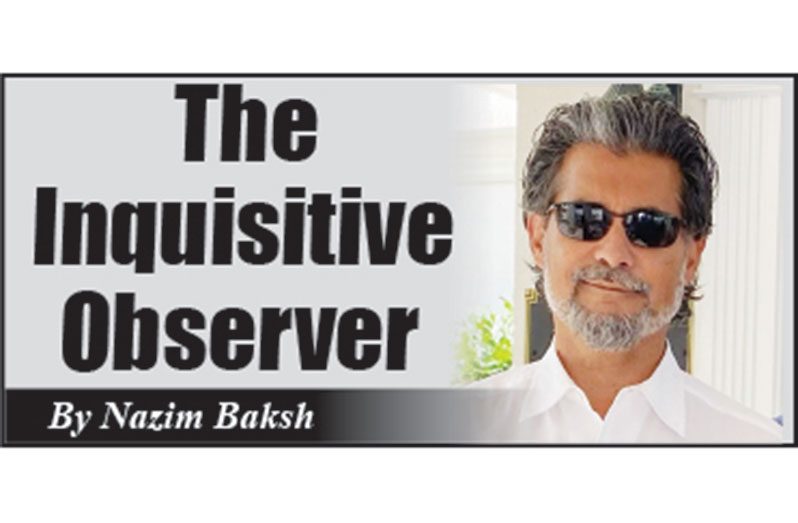ACROSS the globe, a quiet erosion of moral values is underway, not in sudden waves, but in a slow, persistent tide. For years, vigilant civil societies have pushed back, helping to keep the decline at bay. Yet, what’s truly alarming today is how rapidly the sacred is being overshadowed by the profane and how real solutions remain elusive.
Last week, the Guyana Police Force (GPF) is reported to have detained and questioned Baby Skello after he released a music video mocking the Hindu goddess Maha Lakshmi. The Guyana Hindu Dharmic Sabha was not entertained. They condemned Baby Skello’s disrespectful parody of the goddess central to Diwali, a celebration enshrined as a national holiday in Guyana for over five decades.
Skello’s crude apology was less a gesture of remorse and more a bizarre performance that left many listeners dismayed. Guyana’s Ethnic Relations Commission (ERC), tasked with promoting harmony and good relations between the country’s diverse communities, got involved. The ERC summoned Skello to answer a few urgent questions.
Skello is either ignorant of religious values or chooses to ignore them. Sitting with a learned pandit who might teach him the special place Maha Lakshmi plays in the Hindu religion might serve him well.
But Skello is not the only guilty party. The ERC also took aim at the song “Good Like Jesus” by Jamaican artist Vybz Kartel. The commission said the song contained “blasphemous and deeply offensive” lyrics relating to Jesus Christ, and stated that it disrespected Christian, Muslim and Hindu religious sensibilities. It called for the song to be banned from local airwaves and digital platforms.
In multicultural societies, lyrics and artistic expressions that demean and degrade can push the boundaries of profanity into what many consider sacred ground. Offenders often defend such content by invoking freedom of artistic expression, claiming the right to offend using satire and humour, a freedom of expression.
The assumption is that people of faith are so utterly dogmatic that they are unable to appreciate fundamental freedoms of democratic societies.
The freedom of speech defence was echoed during the 2005 controversy surrounding the Danish newspaper Jyllands-Posten, which published 12 satirical cartoons of the Prophet Muhammad.
The publication of the cartoons set off a wave of intense violence around the world. Flemming Rose, the paper’s cultural editor, defended his decision on the grounds that artistes should never cower out of fear of violent Islamists.
It is a strange world that we live in, one where humour has been reduced to ridicule and mockery, and where free speech becomes the freedom to insult, demean and parody others. These contradictions are the absurdities of our modern world.
Music and art that offend and ridicule are a form of violence to our collective dignity. As a society, we seem unsure of where and when exactly we should draw the line.
Recently, I found myself trapped on a bus where the music was so deafening, I felt physically assaulted. My insides vibrated, and a relentless headache set in almost instantly. Mercifully, the ordeal was brief. As we disembarked, several passengers voiced their complaints, echoing my own frustration.
I paid for safe passage, not for an auditory onslaught. Yet, the volume wasn’t the worst of it. The so-called “song” blaring from the speakers was a vile stream of lyrics so misogynistic and degrading to women that calling it music is an insult to the art form. Content this toxic doesn’t belong in any public space; it deserves nothing less than outright banishment.
A study from the University of Missouri found that plants release chemical defences when exposed to the sound of chewing by caterpillars. This has given rise to the question of whether the sound of voices could stimulate certain growth responses in plants. If plants respond to the human voice, why would anyone deny the impact music has on human behaviour?
Unless you’ve been completely oblivious to the ongoing trial of American musician Sean “Diddy” Combs, you’re likely bracing yourself for the next wave of shocking depravity. Every report to the public is prefaced with repeated warnings of graphic vulgarity and disturbing violence.
Imagine the jury’s ordeal, forced to endure a barrage of “freak-off” videos Combs created to publicly humiliate his then-girlfriend, Cassie Ventura. The sheer cruelty on display is both harrowing and unimaginable.
The great Canadian intellectual, Ursala Franklin, offered a poignant solution, and on deep reflection, it appears that it could be applied to Guyana. It’s a concept she referred to as ‘scrupling,’ a Quaker term that represents a new form of citizen politics. Scrupling has become a growing movement that aims to bring citizens together to clarify troubling moral and political issues and chart an alternative course.
Scrupling seeks to avoid the violence that accompanies revolutions and is aimed instead at reconciliation and social engagement. Instead of seeking to tear down existing democratic socio-political systems, communities that engage in ‘scrupling’ seek peaceful change aimed at the good of all citizens.
DISCLAIMER: The views and opinions expressed in this column are solely those of the author and do not necessarily reflect the official policy or position of the Guyana National Newspapers Limited.



.jpg)








